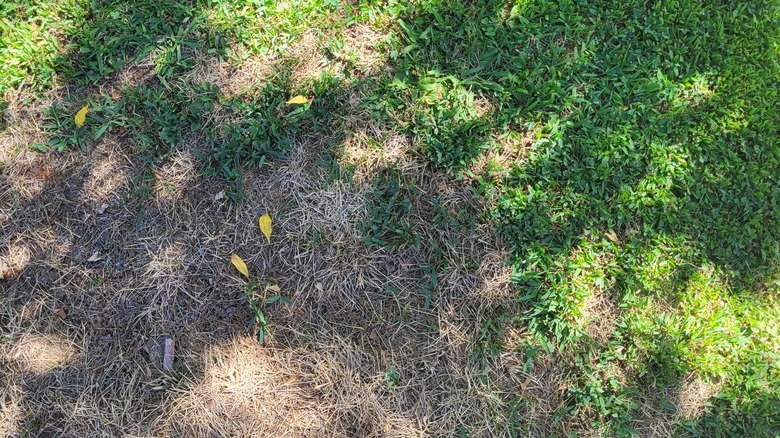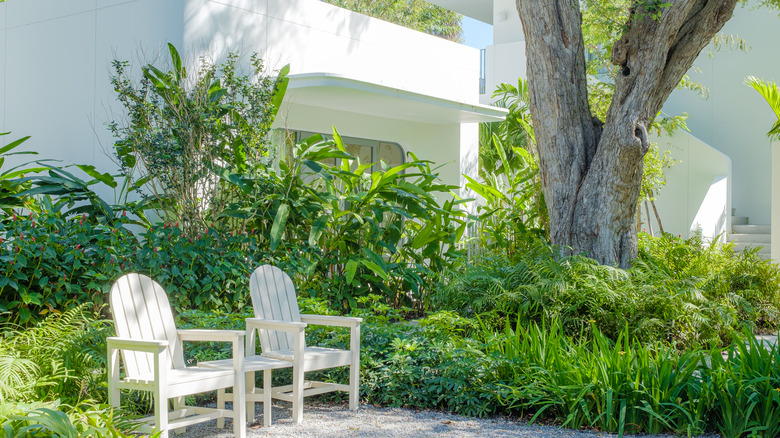The Ground Cover That's Perfect For Shady Areas Where Grass Won't Grow
If you've ever struggled with shady spots in your garden where grass simply refuses to thrive, you're not alone. It can be frustrating to watch your carefully planted grass turn to dead spots in your lawn in areas that don't get much sunlight. But instead of trying to force grass to grow where it doesn't want to, why not embrace the shade and grow a flourishing shade garden by choosing a ground cover that loves low light?
These areas are perfect for hardy ferns, a low-maintenance solution that thrives in those tricky, shaded areas. Ferns are an ideal choice for these spots because they're naturally suited to growing in the understory of forests, where sunlight is often scarce. These plants have adapted over millennia to survive with little to no direct sunlight, making them perfect for spaces under trees or along the north side of your house.
What's more, hardy ferns are incredibly resilient. Once established, they can handle a range of conditions, from deep shade to partial sun, and they don't require constant watering or pampering. Their deep green fronds bring texture and life to your garden, filling in empty spaces where grass would struggle while also offering a soft, natural look that feels both calming and wild.
Popular hardy fern varieties and their care
Now that we've established why hardy ferns are such an excellent alternative to grass in shady areas let's explore some specific varieties that work well in most gardens and what kind of care they need. One popular option is the Japanese painted fern (Athyrium niponicum 'Pictum'). This variety is known for its silver-green leaves with hints of purple, which can add a pop of color to the darker corners of your yard. They are also great for planting near hydrangeas. Japanese painted ferns are easy to care for, thriving in moist, well-drained soil with little attention needed once established.
Another beautiful choice is the ostrich fern (Matteuccia struthiopteris), which has tall, feather-like fronds that can add some extra drama to your garden. These ferns spread through underground runners, making them an effective ground cover that will gradually fill in empty space over time. They prefer consistently moist soil, so be sure to give them a good soak during dry spells. For those seeking a more traditional look, the lady fern (Athyrium filix-femina) is a classic option. It's both delicate and hardy, tolerating a wide range of conditions, from wet soils to drier ones. It's also resistant to pests and diseases, making it a hassle-free addition to your garden.
In terms of care, most hardy ferns don't need much. Keep the soil moist, especially during the first year while they're settling in, and mulch around them to retain moisture and suppress weeds. Fertilizing is rarely necessary, and pruning only requires trimming back dead fronds in the fall or spring. With a bit of care, your hardy ferns will create an eye-catching lawn, turning those shady, stubborn spots into a lush, green oasis.

